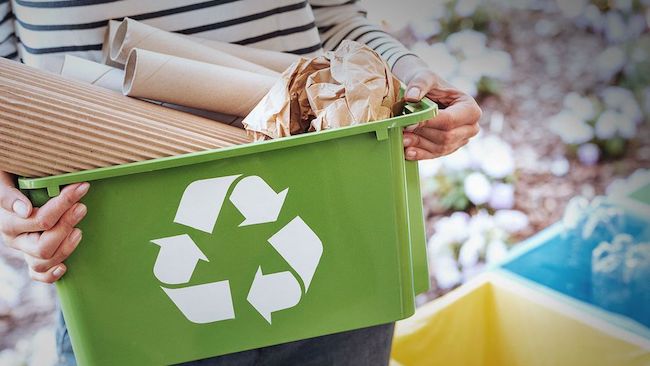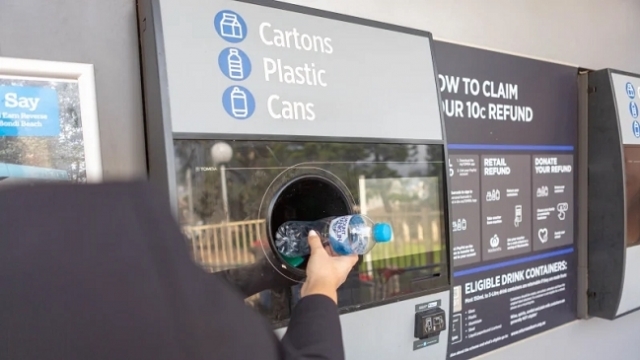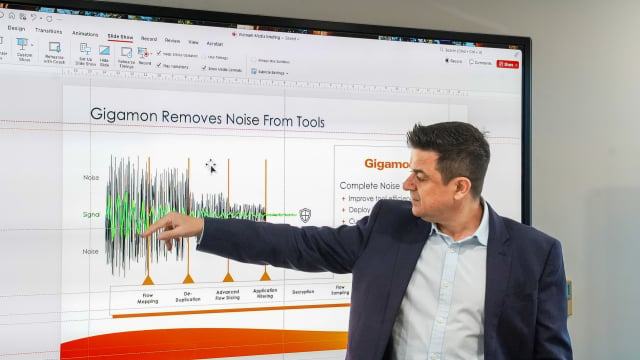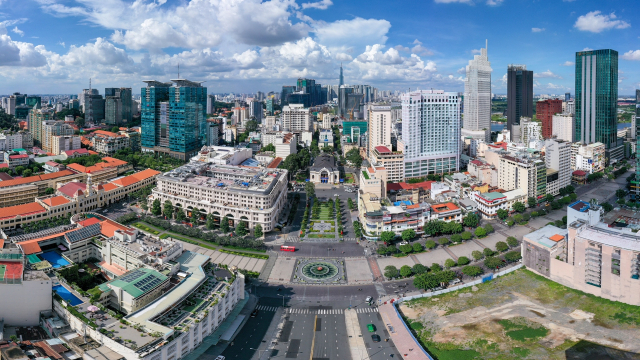Leader Talk
UNDP’s recommendations for Vietnam to drive forward a circular economy
At the conference to kick off the National Action Plan on circular economy, UNDP Viet Nam resident representative Caitlin Wiesen shared some recommendations for Vietnam to drive forward a circular economy for net zero.
The first one is framing a new mission – ‘a green economic rebound’. The economic recovery from Covid-19 offers a historic opportunity to pivot to a more sustainable and inclusive development model.
Covid-19 economic recovery programmes and finance in Vietnam and other countries should serve a triple purpose, including economic recovery, promoting green and sustainable growth, and addressing inequality and inclusion.
It is estimated that Vietnam will require $330 – 370 billion in investments to achieve net zero emissions by 2050 according to the draft National Climate Change Strategy, with significant large up-front investment. FDI and companies have a critical role to play in providing technologies, human and financial capital.
Caitlin Wiesen stressed that Vietnam has been and continues to be an attractive destination for FDI, and the country is well placed to attract further investment needed to power a just circular and energy transition.
The second one is promoting circular cities and provinces, as the engines of energy transition.
With 70 per cent of its population living in coastal areas and low-lying deltas, relocation to cities and within cities is quickly accelerating. Over the last 30 years, Vietnam's urbanisation rate has doubled to 38 per cent, and by 2050 it is estimated that 57 per cent of Vietnamese will be urbanised.
Danang is the first city that formulated and adopted a city-level roadmap on circular economy, with the promulgation of Decision No. 1102 on approval of ‘Research on development of a circular economy in Danang city’.
Yet, for other provinces in Vietnam, developing a specific circular economy roadmap is not yet feasible. In such cases, it is important to continue to develop guidance and provide tailored solutions for advancing the circular economy for provinces now in the process of implementing their socio-economic development plan 2021 – 2026.
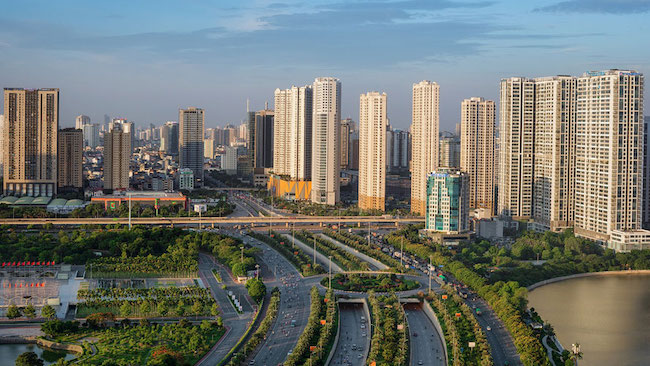
In cities, it is crucial role that the green transport sector can play, in particular with the increase of electric vehicles. Decarbonising the transport sector brings opportunities to improve mobility, reduce local air pollution, and improve the quality of life.
“Moving to electromobility could be one of the great opportunities to support the transition to net-zero emissions while bringing substantial benefits to the economy and the health of society”, she said.
The third recommendation for Vietnam is promoting sustainable,green, and low carbon production and consumption.
The last one is accelerating renewable energy to enhance energy and meet net zero emssions.
Caitlin Wiesen noted that following initial success with the rapid development of solar energy and inshore wind between 2018 – 2020, thanks to progressive feed-in tariffs, Vietnam still have a long way to deploy full potential of renewable energy capacity given a number of constrainsts.
A major constraint on Vietnam's decarbonisation programme is access to long-term financing. In addition, Viet Nam’s unclear renewable energy policy with respect to FiTs has caused some frustration among investors, and inhibited Vietnam from realizing the full green FDI potential. For example, new FiTs for solar development have not been issued since the end of 2020 and November 2021 for wind power.
Vietnam also faces some technical challenges. In 2021, supply redundancy presented a new obstacle as the boom in solar unfolded together with grid congestion. The current transmission grid is of insufficient capacity to cope with the spikes and fluctuations of renewable energy generation from all solar and wind farms.
Furthermore, large investments in storage capacity of renewable energy are needed to store surplus energy. So far, Vietnam does not have and has not yet invested in energy storage capacity.
In this connection, investments in research and development and usage of hydrogen can present Vietnam with advantages to lead cutting edge technologies.
Some cooperation mechanisms to promote circular economy have been established and implemented in Vietnam for years.
For example, established in 2019, Packaging Recycling Organization Vietnam (PRO Vietnam) is an alliance of leading businesses in consuming goods, retailing and packaging which share the common mission by promoting the circular economic model through transforming the processes of collecting and recycling product packages into more accessible and sustainable manner.
Its aspiration and vision are that all of the products produced and distributed in Vietnam by their members will be completely recycled and restored in Vietnam by 2030.
PRO Vietnam is set to achieve this objective by enhancing public awareness and accessibility to recycling in Vietnam, working in public venues, increasing the number of collecting points, improving the collecting process, as well as ensuring recycling capacity to readily process what have been consumed.
In addition, UNDP and Ministry of Natural Resources and Environment launched the Vietnam Circular Economy Hub, of which the mission is anchored around three pillars including enhancing dialogue, generating know-how, and mobilizing collective action towards the circular economy transition.
It aims to raise awareness and build the capacity of all stakeholders, including public authorities, businesses, non-governmental organizations, and academia, in adopting circular economy principles, creating synergies, and integrating financial and technical resources to support the transition towards a low-carbon and circular Vietnam.
Recommendations for Vietnam’s recycling industry from the EU
Vietnam turns semiconductor vision into action
The global semiconductor industry is being reshaped by geopolitical tensions, shifting supply chains, and the surge of digital technologies.
Cutting red tape in APA approvals to speed up tax negotiations
The change in APA approval authority is expected to shorten processing time and enhance business proactiveness in international tax negotiations.
Enterprise cybersecurity is under threat from the inside
As hybrid cloud systems grow more complex, Vietnamese enterprises are struggling to detect cybersecurity threats moving laterally within their own networks.
Breakthrough for the international financial center ambition
The submission of the draft resolution on Vietnam’s international financial center to the National Assembly heralds a new developmental era for the country.
How leadership philosophy redefines hospitality in Nha Trang
More than just running a 5-star resort, Kristian Petersen is redefining the art of hospitality with a humane and sustainable leadership philosophy.
When organic becomes an inspiring wellbeing lifestyle
For Tyna Huynh, co-founder of Drinkizz, organic is not just a food choice but a way of life that fosters a deep connection between people, nature and community.















